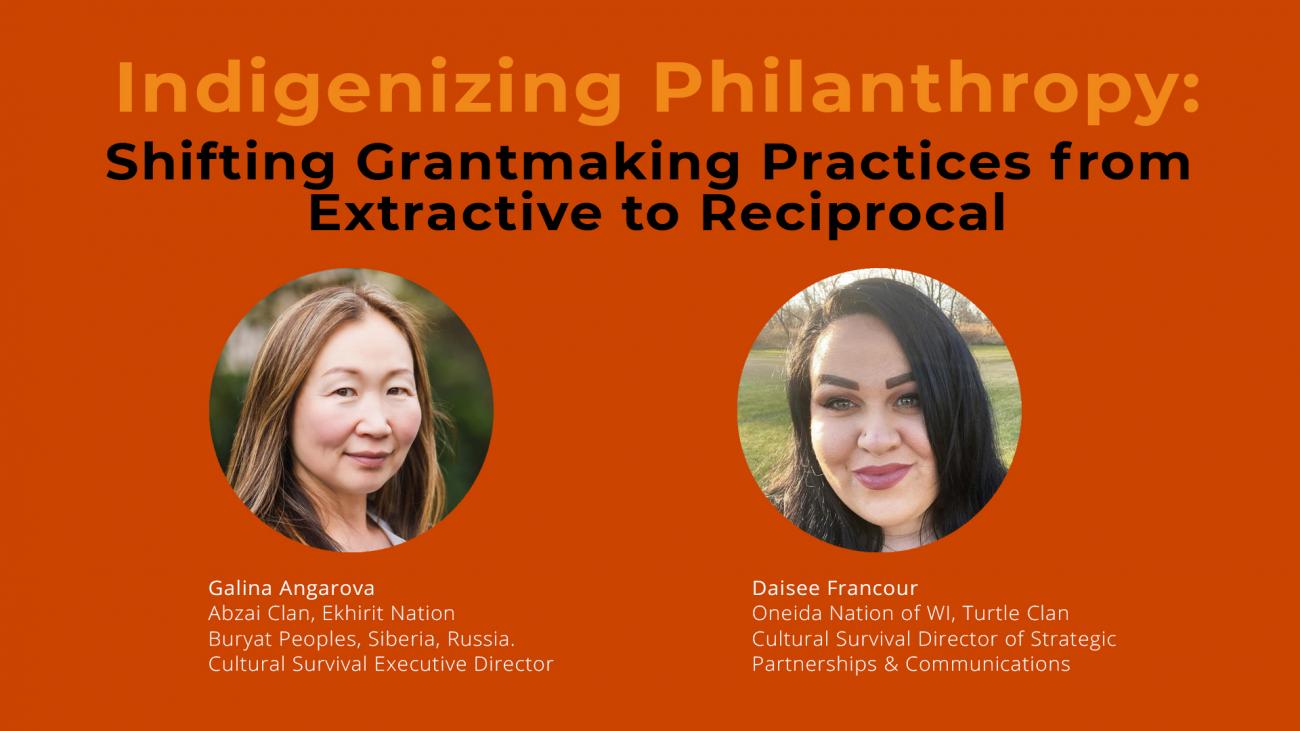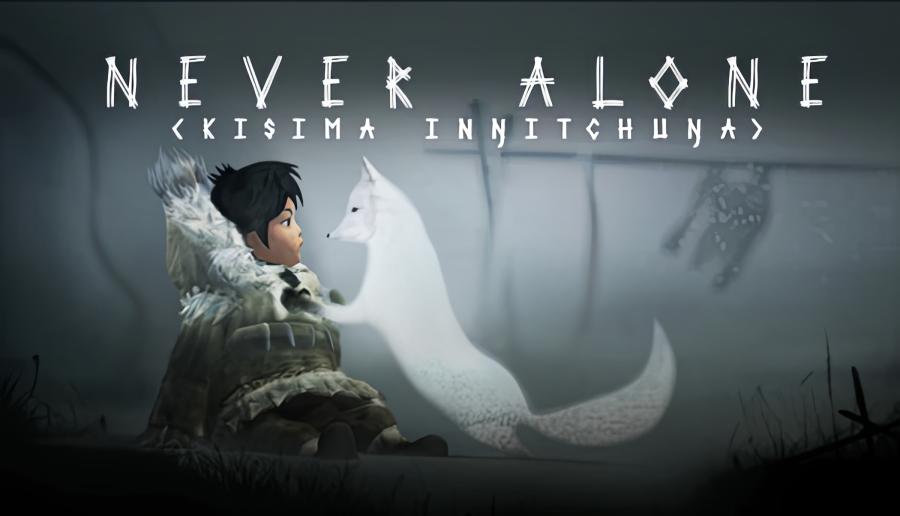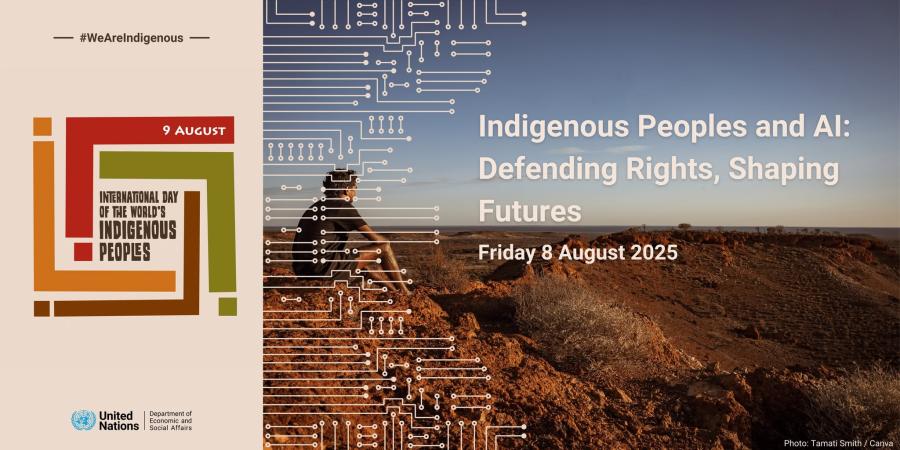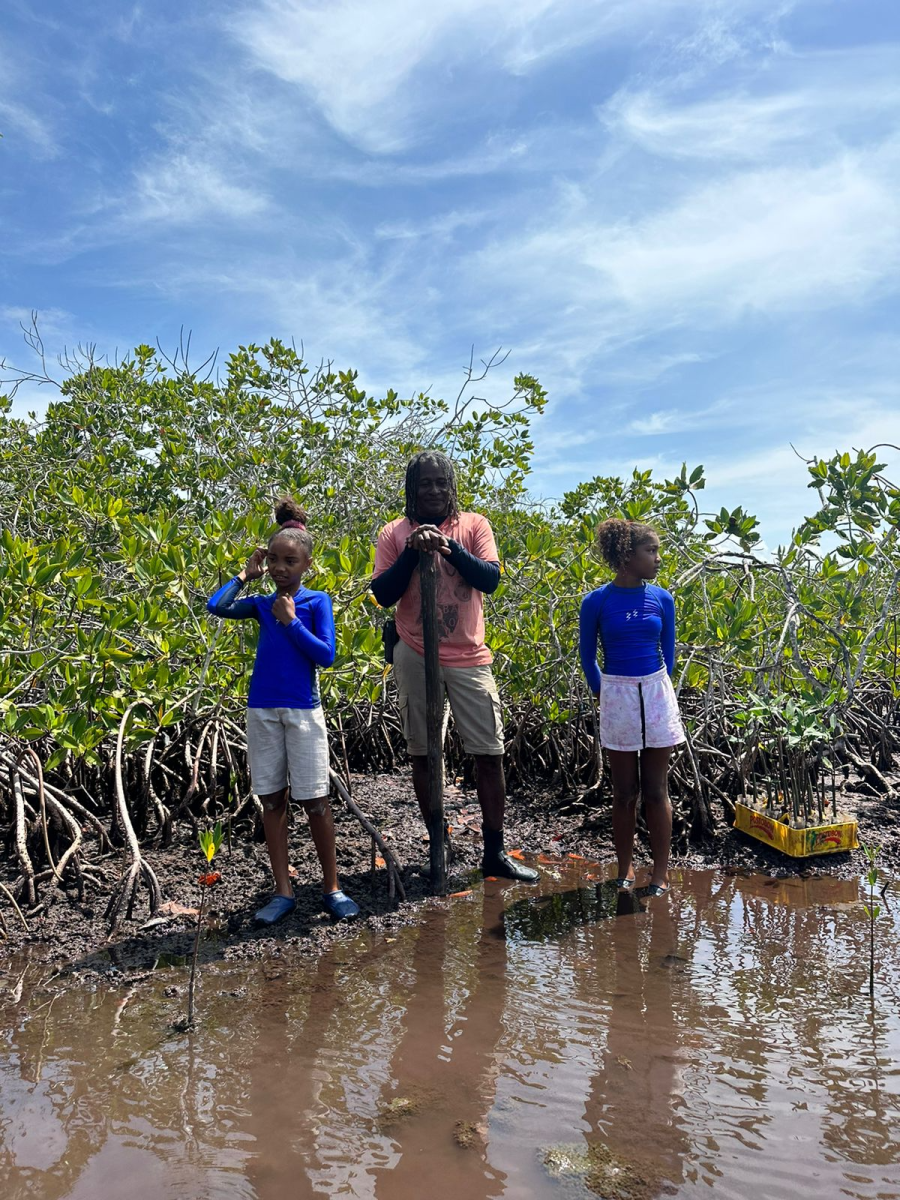
By Galina Angarova and Daisee Francour
The Indigenizing Philanthropy Series is a five-part article series accompanied with a webinar and toolkit to provide a framework in how to transform and Indigenize philanthropy. Co-authored by Cultural Survival staff Galina Angarova (Buryat) and Daisee Francour (Oneida), both authors have unique experiences as Indigenous women who have worked both in philanthropy as program officers for private foundations and as fundraisers for NGOs. Angarova and Francour, Indigenous women from the United States and Russia (Siberia), offer their dynamic expertise and shed an important light on how philanthropy can take a serious, introspective look at its colonial roots and take authentic actions to remedy its future in a way that is aligned with natural law and responsible ways of being and knowing.
Check out these other articles in the Indigenizing Philanthropy Series: (1) Indigenizing Philanthropy and (2) Reimagining Philanthropy: Towards Relationships, Trust, Abundance, and Radical Love
Life is not a linear process, but rather an everlasting loop of birth, life, death, and rebirth. The circle of life shows up in the physical and metaphysical world, in our soils, on the highest mountain tops and in the deepest oceans. As Indigenous Peoples, we know this to be true because it is reflected in our creation stories, songs, prayers and cosmovisions. We see the circle of life for philanthropy nearing the end and putting to rest old practices that no longer serve the collective. Philanthropy’s rebirth is coming, and it is time for new practices of reciprocity, responsibility, respect and relationships under Indigenous leadership will lead the way. While there are some great movers and shakers that are working to address the injustices in the field, philanthropy as a whole must take a bold and honest look at itself, face its ugly truths and colonial roots, and follow the leadership of Indigenous Peoples, and specifically Indigenous women to move forward in a more equitable and balanced way. This third article in Cultural Survival’s Indigenizing Philanthropy Series, examines how philanthropy can shift its charitable giving and grantmaking practices from extractive to reciprocal ways of being and knowing.
For many, philanthropy in its modern form, has become a major industry and a tax haven for the rich — allowing the wealthy to further protect and hoard their resources. During World War I, the United States amended the constitution and its federal tax code to allow for charitable, tax deducting contributions to finance the war. Businesses took advantage of these changes postwar to protect their assets and profits from federal taxes. Moreover, most mainstream philanthropy today is tied to the stock market, and when the economy plummets, so does planned annual giving. But what needs to be understood is that philanthropy has deeper roots than how it is presented today. Philanthropy — the act of giving out of abundance to promote the welfare and quality of life for others — is a practice that Indigenous Peoples have carried out since time immemorial. While the U.S. and other global economies are based on capitalism, extraction, exploitation, and appropriation, Indigenous economies are based on gifting and reciprocity, which in turn maintains balance between Peoples, across ecosystems and in the natural world at large. Philanthropy has a unique position and responsibility right now to respond to and align itself with transformational, societal shifts that are taking place across the globe and rightfully align with social, racial, economic, and climate justice movements.
Capitalism and colonization shows up in philanthropy in more ways that we would like to admit. From top-down, bureaucratic and hierarchical decision-making that lacks true perspective and experience in leadership that is reflected in the communities served, to annual giving that is determined in advance and aligned with the money market, to operating in silos and understanding social issues as linear… the list goes on and on. Colonization and capitalism remain the founding pillars of modern philanthropy and are reinforced by the wealthy individuals, families, and corporations that develop and manage philanthropic institutions like foundations. Recognizing that all colonial currencies and the abundance of wealth that exists in this world today are tied to capitalism with direct historical roots to the theft of Indigenous lands, displacement of Indigenous Peoples and forced, free labor of Black people. Even newer tech companies that date only a few decades back or less, too, can trace the money that seeded their work to the origin of stolen land and forced, free labor. Philanthropy needs to acknowledge this painful history and let its origin of wealth guide it towards transformation.
In response to the various social and racial justice movements across the globe, philanthropy and other fields have coined the term “decolonize” into a hot buzzword, making it trendy and desirable. But what does decolonize really mean?
“Decolonization is the process of deconstructing colonial ideologies of the superiority and privilege of Western thought and approaches. On the one hand, decolonization involves dismantling structures that perpetuate the status quo and addressing unbalanced power dynamics” (Cull et al, 2018).
What should be understood is that decolonizing and Indigenizing a system are not synonymous, but are both important, complementary processes. Decolonizing focuses on unwiring colonial, extractive, and exploitative attributes that interfere with equity, justice, and balance in relationships and our environments. Indigenizing replaces, or rather returns us to our original ways of being and knowing, which supports reciprocal relationships between peoples and place. This unwiring (decolonization) and re-wiring (Indigenization) is a process that is reflected in our neuropaths in the brain and the transition from one to the next takes time, practice and patience to achieve this transformation.
So how does philanthropy move toward transformation? To answer that, philanthropy must identify how colonialism shows up in the field, its institutions and practices. First, philanthropy must normalize introspective and honest conversations about its colonial roots and extractive practices, and boldly acknowledge and denounce the harm it has caused in BIPOC communities. These actions are not simply a one-time task or a checked box, but it is an ongoing act of recognition and admission that builds better practices and eventually shifts organization culture, practices, and outcomes. Moreover, to build better practices and shift organizational culture, there must also be a shift in values, which serves as the north star and guide for how philanthropic institutions fulfills its mission. Developed by International Funders for Indigenous Peoples, foundations should consider adopting the four R’s of Indigenous Philanthropy: Respect, Reciprocity, Responsibility and Relationships. To normalize these values and put them into practice, other actions need to accompany this shift.
Transformative Leadership, Balanced Decision-Making, and Perpetual Learning
As we know, there is a huge disconnect between those who make decisions on funding and those who receive funding. Generally, those in decision-making power have comfortable salaries and their livelihood is mostly unthreatened by the decisions they make. However, for those who are receiving funding, oftentimes their livelihoods is in the hands of funders themselves — job security, income, resources to do the work for community organizations and organizers are often determined by foundations, and largely by the handful of individuals who hold most of the decision making power in the organization. Very few decision-making holders represent and reflect the communities they serve. To work towards transformation, foundations must exponentially increase BIPOC, and specifically Indigenous representation and leadership across staff, senior management, in their Board, and as consultants and advisors. For example, this means non-BIPOC staff, senior management, and Board members who have held long tenure at the organization consider re-defining their relationship to create space for new leadership and ideas. This shift doesn’t mean that their time and contributions weren’t honorable or important, but rather these actions are a catalytic act to enable the organization to transition and move towards transformation. This is where individuals themselves can support the rebirth and renewal of philanthropy directly in their organizations.
Furthermore, the process of decision making and organizational governance must also shift from vertical to horizontal, and practice equity amongst staff and between the Board and staff too. A top down approach to decision making reinforces colonial and extractive organizational culture, further widening the gap between those on the frontlines receiving funding and those determining not only their futures, but in large part, the movement itself. To bridge this gap, decision-making itself should be held with Indigenous knowledge holders and community leaders, and engage the communities served throughout the decision-making process.
In addition to shifting decision-making and the diversity of staff and Board to be more equitable and representative of the communities served, foundations must also prioritize learning as a perpetual act. While on paper, many foundations claim to always be learning and attempt to reflect this in their grantmaking through the questions they ask grantees and the data they gather, yet this data collection has proven to be very harmful to many BIPOC organizations and communities. Data collection and the grantmaking process itself should be designed in collaboration and consultation with the communities served, and each question asked should not only directly contribute to the decision-making process, but mutually serve all parties. Data collection and learning should expand beyond digital grant applications and reports, to include other forms of information sharing. Self-determination should be honored and upheld in grant applications and reporting, as grantees should determine what they want to share about their work, visions and strategies to fulfill their mission. Oftentimes, foundations ask questions and collect data, and the information that sits in a database goes unused or underutilized; foundations become hoarders of data and stays housed internally. Moreover, there should be an increase in external information sharing and learning. This includes more peer to peer learning between funders and grantees, and amongst funders. Despite funders usually operating in silos, there needs to be more intentional sharing and cross-pollination, so that those learnings too, aren’t hoarded. Decolonizing learning includes decolonizing due diligence processes too, and so, the cross pollination of mutual learning should be equally shared across the organization. This includes bridging the gap between executive, program and grants management teams, so that all staff understand the objectives and shared goals of learning, and all staff can contribute. Learning requires humility, and we all experience learning curves in the process. But when we bridge communication and relationships, we are able to better understand and support each other.
Reciprocal Relationships
For Indigenous Peoples, we recognize that all things are related. Each living thing, human and non-human are interconnected and interdependent in the web of life. Our health and well-being are intrinsically tied to one another, to the land and our environments. Our original instructions outline our roles and responsibilities, to the land and each other. Our blood memories remind us to be in better relationship with our environments, and even when we stray from that balance, our ancestral memories pull us back into our reciprocal relationships. However, colonization has conditioned us to think and act as individuals and independently without consequence or accountability, further disconnecting us from each other and the natural world, and our inherent responsibilities to taking care of Mother Earth and all living things. To restore the harm colonization has caused, we must restore, redefine and transform our relationships, and this applies to philanthropy too.
The unwritten rules and protocol of a relationship is defined at the beginning, and is embedded in the language exchanged between the parties, and for funders and grantees, this usually starts before contact. Grantseekers will review a funder’s website and quickly adjust their communication strategy because of the language used by funders to convey how they work, their understanding of the issues along with their strategies (often filled with restrictions) to fulfil their mission. When mission alignment is established (and sometimes stretched) between funders and grantseekers, the language used by funders creates a power imbalance, unreasonable expectations and violated self-determination.
Philanthropy must remember that life is all about relationships, and that includes their ability to fulfill their mission. Nothing happens outside of relationships, whether it's between people or between them and their land and ancestors, all the magic happens when we truly start relating to each other with an open heart and trust. Collectively, we need to (re)learn the art of being in relationship to one another. How do we get to a place of “we”, and not just “I”? How do we go beyond individual gain and success to our collective prosperity? Community and the collective have always been some of the most important values for Indigenous Peoples. We as Indigenous Peoples have always understood that the health of an individual depends on the health of the collective, and this understanding should become foundational for transformative philanthropy.
As philanthropy strives to address power imbalances in their relationships with their grantees, foundations need to treat their grantees as partners. Their partners not only help the foundation fulfill their mission, but deepens their understanding in how to fulfill their mission through a mutual learning journey. Working singularly is a part of the culture in the western world, and reinforces colonization in philanthropy. But to work in true partnership means addressing accessibility between the funder and grantee partner. Restoring relationships requires strengthening access between each other, and funders are generally inaccessible to grantees and grantseekers, often by design, further widening the imbalance in relationships, increasing power dynamics and reinforcing a transactional relationship. What many funders fail to understand is that their grantee partners and the work they do is a primary way funders fulfill their mission, and that funders too, are dependent on their grantees to fulfill their mission. For funders who use donor-advised funds (DAFs), direct access to the funder is nearly impossible and is done so by design, further reinforcing the extractive and hoarded control and protection of resources. Funders must take a serious look at how their access, or rather inaccess is contributing to the harm of BIPOC organizations, and unnecessary labor required to meet the funders demands. Inaccess also takes form in certain requirements outlined in eligibility for grantseekers. Oftentimes, U.S. based foundations require grantseekers in the U.S. to obtain a 501(c)(3) charitable tax status, or a foreign equivalent for grantseekers outside the United States. Few funders allow grantseekers to be fiscally sponsored, or even be an unincorporated organization. This requirement serves as a major barrier for small, grassroots organizations and is actually a violation of their self-determination. Philanthropy needs to regularly assess and ask themselves if and how they are infringing on self-determination of their partners and the movements they support, and understand that the requirements they set are reinforcing colonization.
Shifting from Giving to Gifting
For Indigenous Peoples, our economies are based on gifting and reciprocity. We do not take more than we need and we always give a gift in return, sometimes medicine, song, prayers, and more. Because modern philanthropy is interwoven into capitalism, extractive transactions have disrupted the true purpose of philanthropy — the act of giving out of abundance to promote the welfare and quality of life for others. For example, philanthropy may use the term “gift”, oftentimes synonymous with “grant”, yet requires reporting, and rigorous reporting at that, to prove the money was spent accordingly. So, is this really a gift then? A gift economy means living in a state of abundance and that sharing excess, ensures balance in the natural world and equity amongst people. But how do we bring abundance to a field that is inherently scarce? This requires a collective effort across the field to shift from scarcity to abundance, and be guided by Indigenous Peoples, the originators of the gifting economy. This means getting rid of applications and rigorous due diligence processes that require a grantee to prove themselves over and over again, all while their legitimacy and leadership is continuously questioned even after the grant is awarded, evident in the reporting. Instead, philanthropy can continue to move toward building long-lasting and trusting relationships so extensive applications and rigorous due diligence processes are no longer necessary. Eradicating these extractive processes and replacing them with the opportunity to contribute to incredible things in our world while simultaneously fulfilling their mission is deeply honorable. Yet, colonization has conditioned us to compete with others and to be superior to our peers, our relatives, our equals. We need to remember that philanthropy is about the people, and we are more than a portfolio.
Philanthropy can move towards reciprocity and away from extractive practices through transformational leadership, balanced decision-making, perpetual learning, reciprocal relationships and operating from a place of abundance. But this is only the beginning, and we, as Indigenous women, leaders, and experts in the field, invite you to join us in your journey of healing, decolonization, intentionality and transformation. Stay tuned for the next article, “Indigenizing Philanthropy: Rematriating the Distribution of Wealth” to be released Tuesday, December 8, 2020. Follow along for additional resources in the Indigenizing Philanthropy Series brought to you by Cultural Survival.
Like what you learned? Consider making a gift to sustain the work of Indigenous leadership and grassroots solutions today!



